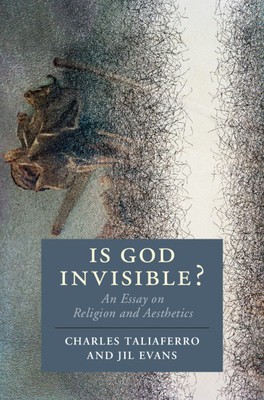
- We will send in 10–14 business days.
- Author: Charles Taliaferro
- Publisher: Cambridge University Press
- ISBN-10: 1108456510
- ISBN-13: 9781108456517
- Format: 15.2 x 22.9 x 1.1 cm, minkšti viršeliai
- Language: English
- SAVE -10% with code: EXTRA
Reviews
Description
In this volume, Charles Taliaferro and Jil Evans promote aesthetic personalism by examining three domains of aesthetics - the philosophy of beauty, aesthetic experience, and philosophy of art - through the lens of Judaism, Christianity, Islam, theistic Hinduism, and the all-seeing Compassionate Buddha. These religious traditions assume an inclusive, overarching God's eye, or ideal point of view, that can create an emancipatory appreciation of beauty and goodness. This appreciation also recognizes the reality and value of the aesthetic experience of persons and deepens the experience of art works. The authors also explore and contrast the invisibility of persons and God. The belief that God or the sacred is invisible does not mean God or the sacred cannot be experienced through visual and other sensory or unique modes. Conversely, the assumption that human persons are thoroughly visible, or observable in all respects, ignores how racism and other forms of bias render persons invisible to others.
EXTRA 10 % discount with code: EXTRA
The promotion ends in 23d.08:35:36
The discount code is valid when purchasing from 10 €. Discounts do not stack.
- Author: Charles Taliaferro
- Publisher: Cambridge University Press
- ISBN-10: 1108456510
- ISBN-13: 9781108456517
- Format: 15.2 x 22.9 x 1.1 cm, minkšti viršeliai
- Language: English English
In this volume, Charles Taliaferro and Jil Evans promote aesthetic personalism by examining three domains of aesthetics - the philosophy of beauty, aesthetic experience, and philosophy of art - through the lens of Judaism, Christianity, Islam, theistic Hinduism, and the all-seeing Compassionate Buddha. These religious traditions assume an inclusive, overarching God's eye, or ideal point of view, that can create an emancipatory appreciation of beauty and goodness. This appreciation also recognizes the reality and value of the aesthetic experience of persons and deepens the experience of art works. The authors also explore and contrast the invisibility of persons and God. The belief that God or the sacred is invisible does not mean God or the sacred cannot be experienced through visual and other sensory or unique modes. Conversely, the assumption that human persons are thoroughly visible, or observable in all respects, ignores how racism and other forms of bias render persons invisible to others.


Reviews